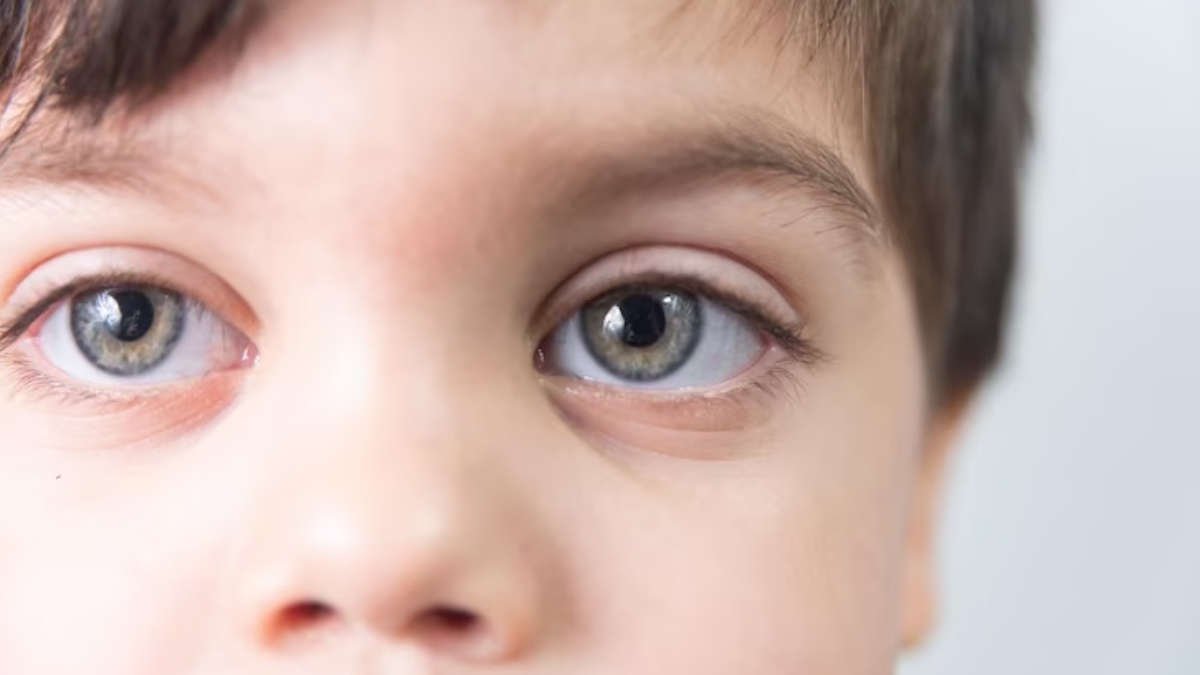
Glaucoma is an eye health condition that causes damage to the eye's optic nerve. It mostly occurs when there is high eye pressure; however, it may even happen with normal eye pressure. In most cases, high eye pressure is caused by insufficient drainage of the fluid by the eye. If left untreated, it worsens over time and eventually results in eyesight loss. You cannot recover your eyesight once you've lost it due to glaucoma. It can even affect infants or children, and its symptoms vary depending on the type and the stage of your child's condition. It is also known as the 'silent thief of sight' as it usually has no symptoms and results in permanent vision loss. We spoke to our expert Dr Achal Singhal, DNB Ophthalmology, a 2nd-year resident doctor, who explained the causes and preventive measures that parents should know to prevent glaucoma in their children.
Table of Content:-
Different Types Of Glaucoma
Pediatric glaucoma can be distinguished based on the age of its occurrence.
- Congenital glaucoma occurs at the birth of the child.
- Infantile glaucoma occurs between the age of one to 24 months.
- Juvenile glaucoma occurs in a child after the age of three years.
Also Read: What Frequent Eye Twitching Might Indicate, Expert Explains
Causes Of Childhood Glaucoma

Common causes of congenital or infantile glaucoma are as follows:
- Your child may experience excess watering in their eyes.
- There may be pain or redness in your child's eyes.
- Your child may develop photophobia. This means your child will be sensitive to light or will be unable to see in the light.
- There may be enlargement of the eyes, known as buphthalmos.
- The cornea may appear cloudy, which can make the iris look dull.
- Your child may stop looking or rather not follow you or a toy they are playing with.
- Juvenile glaucoma can develop without any known symptoms. Such children usually have a family history.
Also Read: How To Prevent Glaucoma Related Blindness With Timely Detection & Management, As Per Expert
How To Prevent Glaucoma In Children

Here are some ways that you should follow to prevent glaucoma in children.
- You should ensure that your child gets regular eye examinations from an ophthalmologist, including measuring intraocular pressure. This will help in diagnosing the condition faster. It is also important to take medications as prescribed by the doctor.
- Protecting your child's eyes from injuries is important as it may lead to glaucoma. Make sure your child wears protective eyewear while playing sports.
- It is vital to stay physically active and go for regular walks and exercise to lower the pressure in your eyes. However, you should note that an intense workout may increase your heart rate and eventually raise your ocular pressure.
- Avoid keeping your head bent for an extended period of time if you have glaucoma or are at high risk of developing the condition. This is because it can raise your ocular pressure.
- It is important to get glaucoma screenings from your ophthalmologist as early as possible if there is family history of glaucoma.
Takeaway
Glaucoma can be treated through surgery or medication. In the case of children, surgery is the preferred choice of treatment to prevent long-term vision complications. There may be no eye problems in the early stages of glaucoma. Non-specific symptoms like headaches, watering eyes, or seeing a coloured aura may or may not be present in some persons. The most frequent reason for childhood glaucoma is the unintentional usage of steroidal eye drops for various allergic eye conditions. Therefore, it is important to consult with an ophthalmologist if you suffer from eye issues, as your eyes are very sensitive.
Also watch this video
How we keep this article up to date:
We work with experts and keep a close eye on the latest in health and wellness. Whenever there is a new research or helpful information, we update our articles with accurate and useful advice.
Current Version